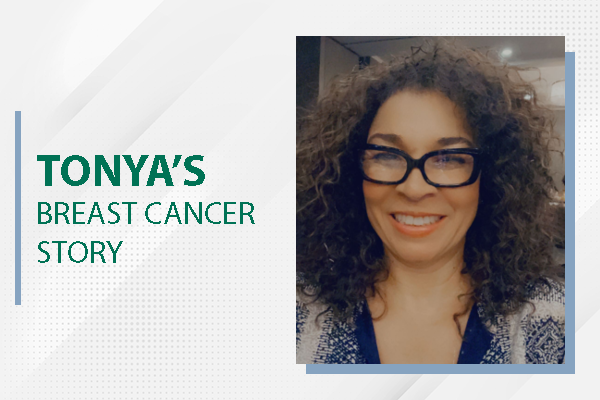Tonya, 58, had some misconceptions about mammograms. She believed she was in the clear because her mother had undergone genetic tests for cancer and had not passed it on to her. However, she later discovered that her mother had only undergone two genetic tests 12 years ago.
Due to a traumatic experience with a mammogram in 2011, Tonya had been avoiding them for years. It wasn't until this past January that she decided to go for a mammogram, despite her previous reservations. During this recent mammogram, her healthcare team detected a suspicious lump and recommended further testing.
She proceeded to have a diagnostic mammogram, an ultrasound, and finally a biopsy because the radiologist was concerned she might have ductal carcinoma in situ (DCIS), which is a noninvasive, early form of breast cancer where abnormal cells are present inside the milk ducts.
Unfortunately, five days after the biopsy, Tonya’s doctor called to tell her that she had DCIS on her left breast and that her right breast was precancerous. From there, things began to move quickly. She was referred to a surgical breast oncologist who told her she had stage 0 non-invasive breast cancer in the left breast and Flat Epithelial Atypia (FEA) in the right breast. Tonya had two choices: she would need either a lumpectomy or a mastectomy.
“I chose to have both breasts removed, known as a double mastectomy,” Tonya tells us. “I wanted to be sure it would not come back, so it all needed to go.”
Tonya also went for extensive genetic testing to check for gene mutations, but all came back negative. Her family urged her to get a second opinion before the mastectomy, but she didn’t want to delay the timeline. She wanted the cancer removed as quickly as possible.
“In my spirit I felt like this is something I had to do now,” she explains. “It was my choice and I did not want to listen to everyone’s suggestions and advice.”
Tonya went for her double mastectomy at the end of May. After the surgery, her surgeon told her that she had a lot of cancer in her breasts, which let her know she had made the right choice in getting the double mastectomy. Tonya has a very supportive family and her son and cousins helped her in her recovery, but the entire experience was physically and mentally challenging.
“I am a single woman and losing my breast is a part of femininity,” she says. “When healing, I had to look at myself in the mirror and see the oddness of no nipples and lots of scars. I am 58 years old, and this was so odd after seeing your body one way and then overnight it looks so different.”
Aside from adjusting to her post-surgery body, Tonya also experienced a physical complication after her surgery — a blood clot. But with blood thinners and close monitoring, doctors say she should be fine. She’ll be having breast augmentation surgery this fall. She is grateful to her primary care for referring her to Dr. Jennifer Dallas, an oncologist at Oncology Specialists of Charlotte. “Dr. Dallas was wonderful,” stated Tonya. “She explained my care and treatment in terms that I could understand. I am very fortunate to have her following my care.”
Tonya feels confident that she made the right decision to have a double mastectomy. She’s happy she acted quickly and knows she can still have a good quality of life, but she’s still adjusting. “Physically, I get better each day, but mentally, I am still dealing with this,” she says.
She has come to realize that as much as her cancer experience is a physical journey, it’s also a mindset journey. She’s determined to share her story so that others who are living with cancer — even stage IV cancer — will understand they have a purpose and that it’s okay to cry and experience all the feelings that come along with navigating a cancer diagnosis and treatment.
But that’s not all. Tonya has another important piece of advice she wants to share with anyone who will listen: “Ladies, get your mammogram yearly,” she urges.
Tonya’s story is a testament to the importance of breast cancer screening and its ability to detect early-stage, treatable breast cancer rather than putting off a mammogram and risking not detecting cancer until it progresses to a more advanced stage that’s more difficult and intensive to treat and more likely to recur.
published: Oct. 16, 2023, 8:53 a.m.

